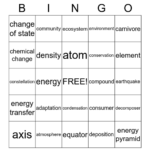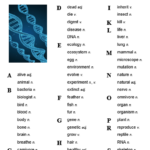Words That Start With Nan
1. Nanny
2. Nanny-goat
3. Nannyish
4. Nannyism
5. Nanogram
6. Nanosecond
7. Nanotechnology
8. Nanotube
9. Nanomaterial
10. Nanofiber
11. Nanomachine
12. Nanoparticle
13. Nanodomain
14. Nanobiotechnology
15. Nanocluster
16. Nanocosm
17. Nanocrystal
18. Nanodot
19. Nanofabrication
20. Nanohybrid
21. Nanomotor
22. Nanowire
23. Nanoplankton
24. Nanotransistor
25. Nanomagnet
26. Nanowatt
27. Nanoelectronics
28. Nanophysics
29. Nanotextile
30. Nanobubble
More About Words That Start With Nan
Welcome to the fascinating world of words that start with “nan”! In this article, we will explore a plethora of unique and captivating terms that begin with this distinctive three-letter combination. Whether you are a language enthusiast, a writer, or simply someone who appreciates the beauty of words, you are in for a treat.
The English language is rich with diverse words, and “nan” has its share of gems. From nouns and adjectives to verbs and even names, these words add a touch of intrigue and curiosity to our linguistic palette. Exploring the meanings and origins of these terms can open the doors to hidden stories and connections that intertwine the threads of our language’s tapestry.
To kickstart our journey, let’s delve into the realm of nanotechnology. Nanotechnology, often called the “science of the small,” refers to the manipulation and study of matter at the nanoscale, typically involving structures and particles sized between 1 and 100 nanometers. With its vast potential to revolutionize various fields, such as medicine and electronics, nanotechnology has garnered considerable attention and excitement in recent years.
Moving on from the scientific realm, we encounter the endearing term “nanny.” Popularized by countless books and movies, a nanny is someone who provides childcare services, typically outside the immediate family circle. Nannies offer not only supervision but also mentorship and nurturing, becoming a highly valued figure in a child’s life. From Mary Poppins to modern-day caregivers, the role of nannies has left an indelible mark on both literature and the real world.
Expanding our reach, we find the word “nanosecond.” While a seemingly brief moment, a nanosecond is incredibly significant in the realm of timekeeping. One billionth of a second, to be exact, it is a term that has revolutionized fields like computer science, telecommunications, and physics. In our fast-paced modern world, where every millisecond counts, the measurement of time at the nanosecond level has become indispensable.
As our linguistic exploration continues, let’s delve into the concept of “nanobots” tiny, robotic devices measuring a few nanometers in size. These minuscule machines, often envisioned in science fiction, hold immense potential and capture the imagination. Although nanobots remain more of a concept than a reality, scientists are actively researching their development for various applications, from medical interventions to environmental monitoring.
Next, we encounter the word “nandita,” a beautiful Indian name that derives from Sanskrit. Meaning “cheerful” or “joyful,” Nandita has become a popular choice for parents seeking a unique name for their child. The name’s origins and cultural significance offer an intriguing glimpse into the diversity of human expression and tradition.
With our minds brimming with knowledge of nanotechnology, nannies, nanoseconds, nanobots, and the name “Nandita,” we have barely scratched the surface of the rich and exhilarating world of words starting with “nan.” The English language continues to evolve with each passing day, expanding its lexicon and embracing new terms that capture the essence of our experiences and aspirations.
Join me on this linguistic voyage, where we shall unravel the mysteries surrounding these captivating words. From their etymology to their contemporary usage, we will explore the nuances and significance of each term. Whether you seek linguistic trivia, inspiration for your writing, or simply a delightful diversion, this exploration promises to offer both knowledge and enjoyment.
So, fasten your seatbelts, open your minds, and embark on this word-centric adventure. Together, we shall uncover the hidden treasures that lie within words beginning with “nan.” Let’s dive into the sea of “nan” and be swept away by its enchantment!
Words That Start With Nan FAQs:
FAQs about words that start with “nan”:
1. Q: What are some words that start with “nan”?
A: Some words that start with “nan” include nanosecond, nanotechnology, nanny, Nantucket, and Nanking.
2. Q: What does “nanosecond” mean?
A: A nanosecond is a unit of time equal to one billionth of a second.
3. Q: What is nanotechnology?
A: Nanotechnology refers to the manipulation and control of matter on an atomic and molecular scale, typically at dimensions of 1 to 100 nanometers.
4. Q: Who is a nanny?
A: A nanny is a person who is hired to look after and care for children, often working in the child’s own home.
5. Q: What is Nantucket?
A: Nantucket is a small island located off the coast of Massachusetts in the United States, known for its beautiful beaches and historic charm.
6. Q: Where is Nanking?
A: Nanking, also known as Nanjing, is the capital of Jiangsu province in eastern China. It has a rich history and is known for its cultural significance.
7. Q: Are there any other words starting with “nan” related to technology?
A: Yes, there is a programming language called NAnt, which is often used for automated software builds and development tasks.
8. Q: Can you provide an example of a word that starts with “nan” but is not related to technology?
A: Certainly! “Nanook” is a word that refers to an Inuit term for a polar bear.
9. Q: Are there any words starting with “nan” that have a negative connotation?
A: No, none of the words starting with “nan” inherently have negative connotations. It solely depends on how they are used in context.
10. Q: Do any scientific units or measurements start with “nan”?
A: Yes, “nanometer” is commonly used in scientific fields to measure exceptionally small distances, corresponding to one billionth of a meter.


















